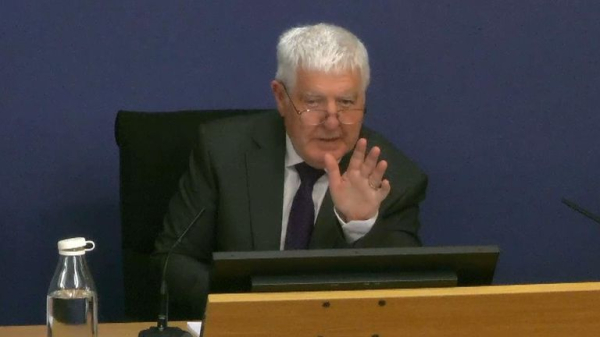Post Office Inquiry: If Paula Vennells’s first day was about ignorance, then day two made ignorance look like bliss

If Paula Vennells’s first day in the witness stand was memorable for her tears and self-justifications at facing public scrutiny for the first time in nine years, the second was less dramatic but more substantial.
During her seven years as chief executive, hundreds of sub-postmasters were sent to jail based on flawed evidence thrown up by the Post Office’s Horizon IT system.
Ms Vennells’s defence is that despite her experience – she was in senior roles for five years before taking the top job – she just did not know.
She spent much of day one establishing just how complete her ignorance was.
Post Office inquiry: Day 2 of evidence from former CEO – As it happened

She didn’t know there were bugs in the Horizon system before she became CEO. She didn’t know that branch accounts could be accessed remotely.
She didn’t even know the Post Office carried out its own prosecutions, a power it has held since the days when Dick Turpin was a greater threat to the bottom line than sub-postmasters.
Day two was largely concerned with what she did when she finally did find out what was going on, and it made ignorance look like bliss.
Over more than six hours of questioning, a picture emerged of an obsession with spin, public relations, media management, and the Post Office’s reputation being placed over and above concern for sub-postmasters.

It was most clearly exposed in correspondence between Ms Vennells and the then Post Office communications director Mark Davies.
It concerned her suggestion in 2013 that the Post Office conduct a review of all false accounting cases over the previous five to 10 years.
That plan was never pursued, and inquiry counsel Jason Beer asked if that amounted to “a lost decade until miscarriages of justice were discovered?”
“It may well have done,” she agreed. “It may well have done.”

That begged the question, why didn’t it happen, and part of the answer came in an email from Mr Davies offering his view.
“If we say publicly that we will look at last cases… whether from recent history or going further back, we will open this up very significantly into front page news. In media terms it becomes very mainstream, very high-profile,” he wrote.
“To what extent did what Mr Davies advice here affect your decision-making?” she was asked.
“I would never – it was simply not the way I worked,” she said.

Follow Sky News on WhatsApp
Keep up with all the latest news from the UK and around the world by following Sky News
Tap here
Mr Beer then produced her reply to Mr Davies: “You were right to call this out. And I will take your steer, no issue,” she wrote.
“There are two main objectives, the most urgent being to manage the media, the second to make sure that we do address the concerns of JA [James Arbuthnot] and Alan Bates.”
“You did take the advice of the PR guy, didn’t you?” Mr Beer asked.
Her response, that she really didn’t remember, was drowned out by groans of derision from the sub-postmasters in the room, prompting chair Sir Wyn Williams to call for order.
Failure to remember is a consistent theme of Ms Vennells’s evidence, perhaps peaking with this, when asked about a 2013 board meeting: “My recollection,” she said, “is that I don’t recall.”

